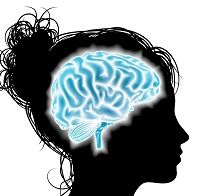Article
Prenatal Antidepressants May Carry Autism Risk
Author(s):
Pregnant women who take antidepressants during the second or third trimester may be putting their babies at an increased risk of developing autism, a Canadian study found.

Pregnant women who take antidepressants during the second or third trimester may be putting their babies at an increased risk of developing autism, a Canadian study found.
Writing in JAMA Pediatrics researchers Anick Berard, PhD of the University of Montreal and colleagues said they looked at data for pregnancies and births in Quebec from January 1998 through December 2009.
The general prevalence of autism is an estimated 1% and in this study 0.72 % of the babies born in the time period in Quebec (1,054 of 145,456 live births) later got an autism diagnosis.
The authors then looked to see how many of those mothers had taken antidepressants while pregnant. They found that 3.2% had.
The babies born to those women who took the drugs were more likely to develop autism if they were exposed in middle or late pregnancy (1.2% or 31 infants received an autism diagnosis before age six) than in early pregnancy (1.0% of those exposed infants or 40 children received the diagnosis).
There was no evidence that maternal depression itself contributed to the higher autism rates, the authors noted, just the numbers showing an association with taking antidepressants.
The percentages are still low since while 4,724 mothers took the drugs, a total of only 71 babies later got the autism diagnosis.
Commenting on the study in an accompanying editorial, Bryan King, MD, MBA, of Seattle Children’s Hospital wrote that “It is unlikely that there will be a straight line from such exposures that leads unwaveringly to autism spectrum disorder,” despite the fact that “in utero exposures are increasing as the focus” of possible causes of autism.
The study authors say their research had limitations: the finding on the number of women taking antidepressants was based on prescriptions filled, but it is possible not all the women actually used the drugs.
Also, they did not assess maternal lifestyle, which could have data on yielded behaviors that could have contributed to the slightly higher rates of autism in their children.




